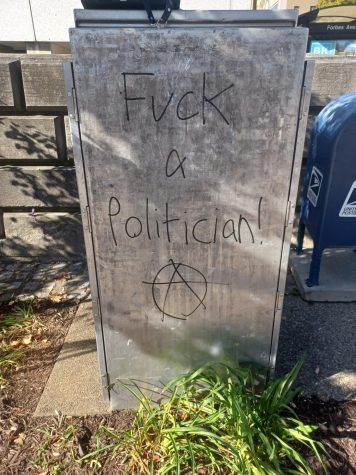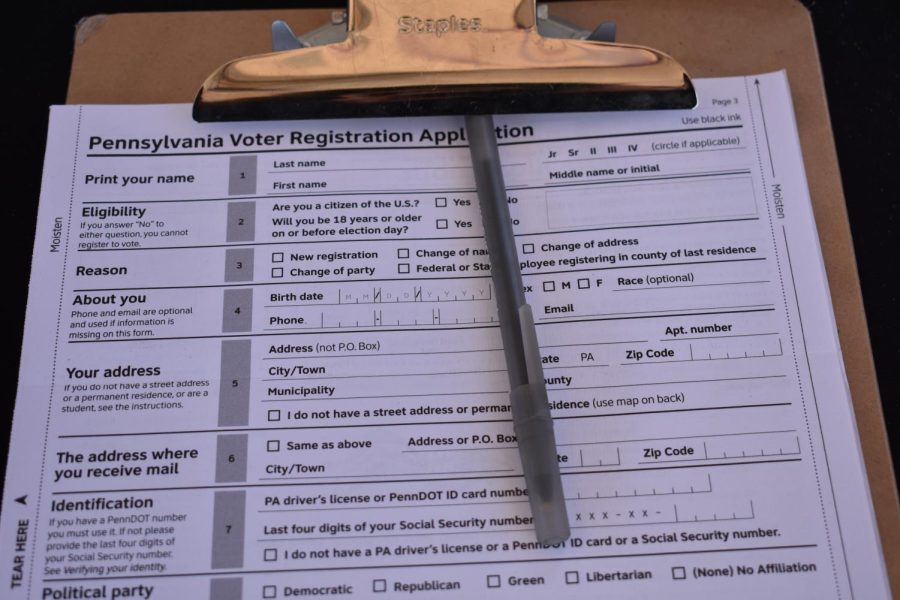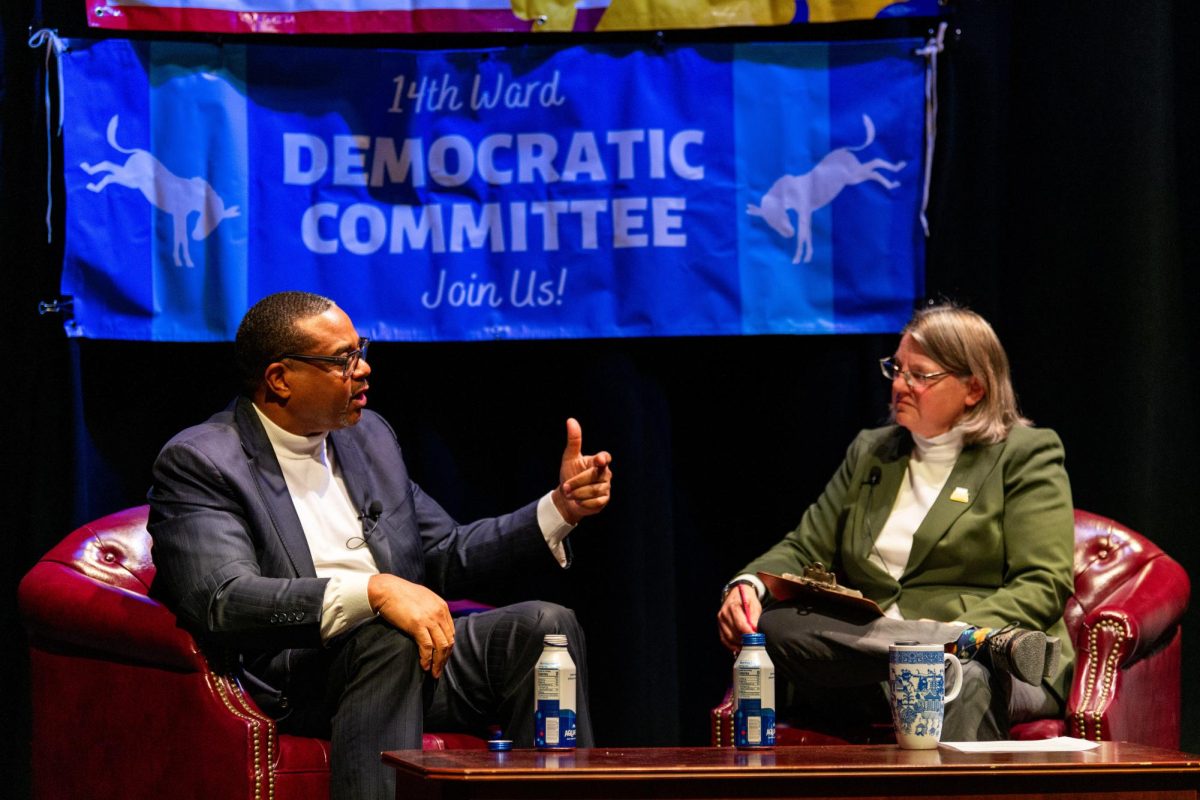Some voter registration groups report harassment on campus, others say they’ve had only positive interactions
Alyssa Carnevali | Staff Photographer
A Pennsylvania voter registration form.
October 25, 2022
Chris Langer found “Fuck a politician” and the anarchy symbol spray-painted onto an electrical box on the corner of Forbes Avenue and Schenley Drive on Oct. 14. Langer, who’s canvassed on that corner for the past two months, said it’s the result of continued “anti-vote harassment.”
“There’s not a week that goes by that we don’t have somebody try to dissuade us from being here,” Langer, a 2017 Pitt graduate, said. “Expressing anger is important to the political process, however, I don’t think defacing public property with anti-political messages is okay.”
Langer said he called Pitt maintenance to have the graffiti removed that same day and chose to not file a police report.
Some canvassers who are part of non-partisan groups said they’ve received backlash for registering students to vote on campus since they started in August. The deadline to vote in the midterm elections in Pennsylvania passed Monday.
Five days a week, Langer set up a tent next to Hillman Library to register pedestrians to vote as they walked by. Langer said since the first week of August, his organization, Revolution Field Strategies, has registered more than 1,200 Pitt students to vote. In that time, he said he’s been harassed by both Pitt students and Pittsburgh residents.
“A gentleman who had a Pitt hat backwards walked past the tent and bumped into our speaker that we have on the corner, put his two … middle fingers up in the air and told us to go ‘F’ ourselves,” Langer said.

Langer said an older woman has also tried to dissuade students from voting at the site and harassed him and his colleagues over the past two months.
“She said we were part of some chemical engineering company and we were partisan,” Langer said. “She walked around telling everybody that we were scam artists, which we are clearly not scam artists because students come by and show us their voter [registration] cards like every single week.”
Langer said he thinks the anti-vote stance comes from people who feel “disenfranchised from the government.” He said voting is the first step in becoming engaged.
“There are a lot of important issues that are on the line for students, no matter their political affiliation,” Langer said. “And I just feel like the more educated and aware of who the candidates are and how it’s going to impact them, the more likely people are to vote.”
Kaed Rende, a graduate student in the School of Education, is the Graduate Assistant at Pitt Votes, where he oversees student canvassers and organizes voter engagement events. Rende said the only harassment he faced this election season was from a partisan voter group.
Rende said he was canvassing in front of the William Pitt Union last Tuesday when he noticed politically affiliated canvassers. According to Rende, Pitt only permits non-partisan voter initiatives to canvas on campus and he approached the group to tell them to leave.
“They were very much campaigning for a party for certain candidates,” Rende said. “We were like, ‘Hey, like, who are you with,’ and they screamed at us, like full volume screamed that they were allowed to be there.”
Rende said it’s telling students their “voice matters” that inspires him to keep on canvassing.
“Young people are the future and we’re voting on the future,” Rende said. “Baby boomers are the largest generation…but they will not be around as long as young people. So I think it’s important that young people are the ones making decisions about their own futures.”
Olivia Pinocci-Wrightsman, a first-year political science major and canvasser for Pitt Votes, said she’s had only positive experiences with new first-year voters who she said are “excited to get engaged and learn.”
“[Students] are really excited to vote in their first election, there are things that are impacting their daily lives that they feel that like they’ve not really had a say in changing and now they do,” Pinocci-Wrightsman said. “A lot of the conversations I’ve had [with students] have been conversations surrounding excitement and enthusiasm.”
Pinocci-Wrightsman said with the right to vote, students get a chance to make an impact in their community.
“Voting on a college campus is super important because you’re living here for the next four years, and so you want to be able to make an impact in the community that you’re … interacting with every day,” Pinocci-Wrightsman said. “But voting, in general, is important because what you have to say matters, your input, your experiences, your values — they’re all important.”



